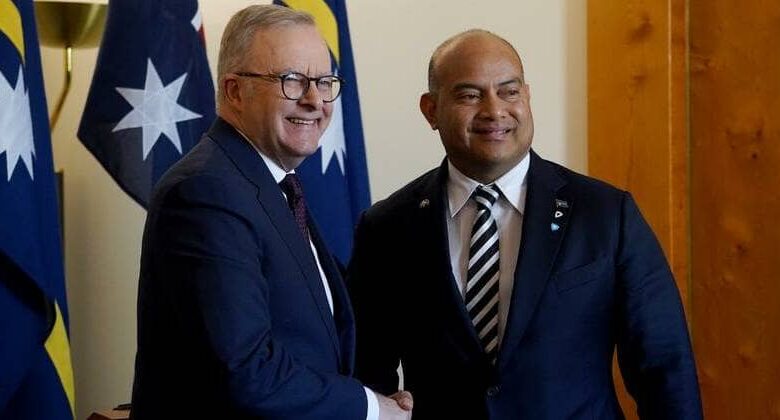
Australia Cements $100M Pact with Nauru to Counter China’s Pacific Expansion
In a strategic move to counter China’s growing influence in the Pacific, Australia has signed a $100 million security deal with the island nation of Nauru.
The agreement not only strengthens Australia’s ties with the region but also sends a clear message to Beijing about Canberra’s commitment to maintaining its presence and influence in the vital Indo-Pacific theater.
The security treaty, signed between Australian Prime Minister Anthony Albanese and Nauru President David Adeang, provides Nauru with a range of support, including aid, banking, and infrastructure development.
In return, Australia has secured a veto over any prospective agreements Nauru may seek to establish with a “third party” – a thinly veiled reference to China – over the next five years.
The agreement mandates that Nauru must consult with Australia before entering into partnerships or agreements in critical sectors such as telecommunications, banking, or cybersecurity.
The Australia-Nauru agreement marks the second such security deal that Canberra has signed with a Pacific island nation, the first being a similar arrangement with Tuvalu.
The timing of the Nauru deal is also significant, coming just months after the island nation announced the suspension of its diplomatic ties with Taiwan, which China claims as a breakaway province. Nauru’s President Adeang subsequently visited China, fueling speculation about potential financial agreements with Beijing.
However, the new Australia-Nauru pact has effectively stymied those plans, with the Commonwealth Bank of Australia now set to provide banking services in Nauru instead.
Addressing the media alongside President Adeang, Prime Minister Albanese emphasized that the deal would “strengthen Nauru’s longer-term stability and economic resilience,” while also being “firmly in Australia’s interests in a peaceful, secure, and economically resilient Pacific region.”
Adeang, in turn, expressed Nauru’s appreciation for Australia’s “steadfast support” as the country navigates its unique developmental challenges and seeks to safeguard regional peace and stability.
This security pact is part of a broader strategy by Australia to counter China’s growing influence in the Pacific. Canberra has also been actively involved in multilateral initiatives, such as the Quad, to engage with nations in the region and present itself as a more reliable partner than China.



